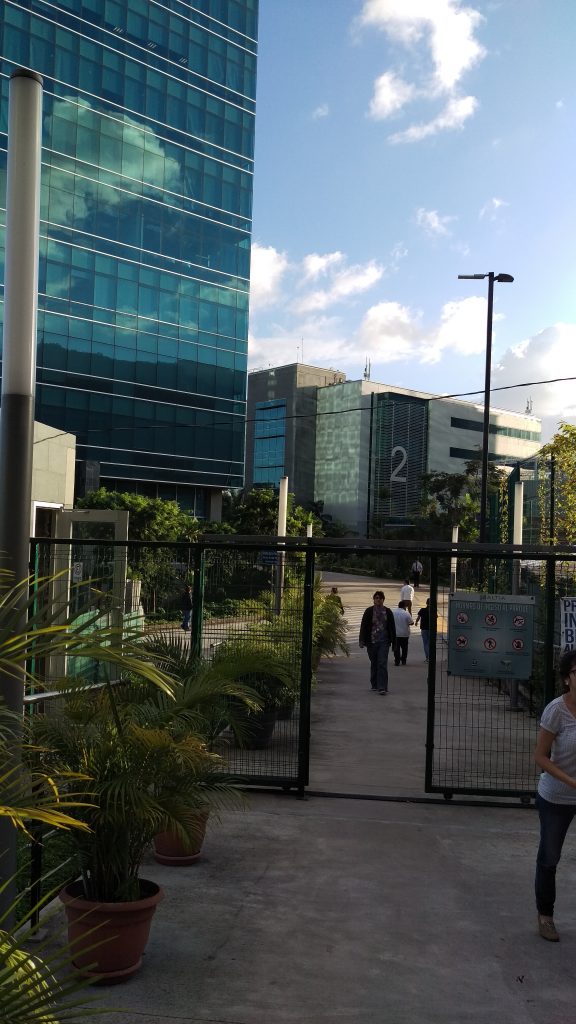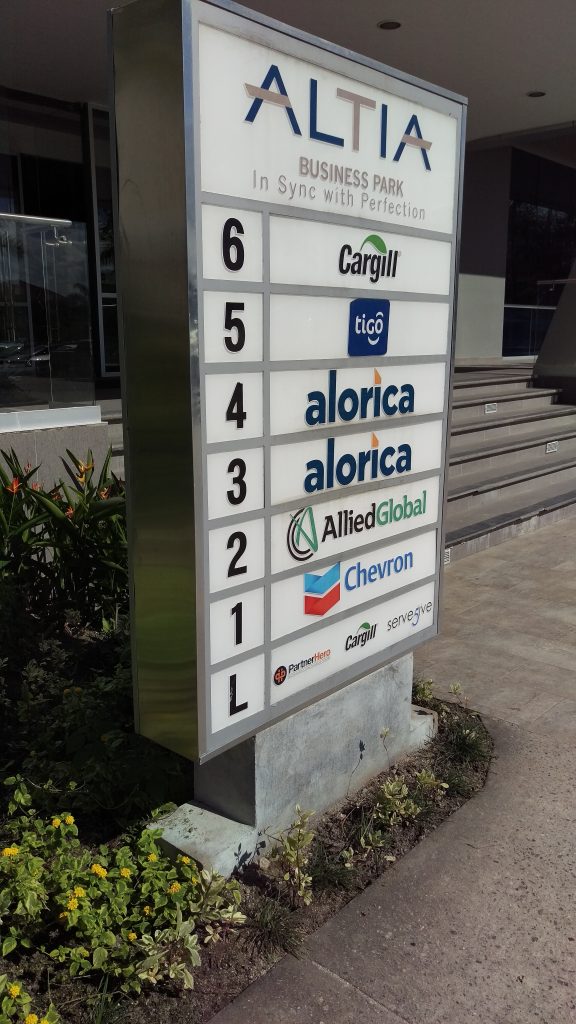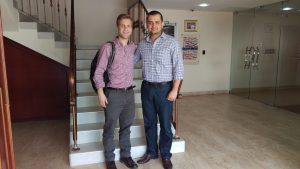Student Research: Identifying Binding Constraints and Increasing Economic Complexity in Honduras
by Justin Erickson (MALD 2017)
My research is based on identifying economic development policy priorities for Honduras at the country level. Low income countries like Honduras might benefit by strengthening the rule of law, improving infrastructure, or maintaining macroeconomic stability. However, I am interested in what Honduras should do first. What should be the economic development priority of the country right now? E.g. What is currently constraining higher levels of income growth? This is particularly important for Honduras because it is facing a demographic “window of opportunity” in the upcoming years. This will be a period when the ratio of the working age population to total population is projected to reach its peak.
 As part of answering my research question I went to Honduras to interview business owners and investors. I focused on businesses in industrial parks that operate in free zones. Free zones provide exporting companies certain tax benefits. I was curious to find out what other benefits industrial parks provide, and what businesses are doing to overcome barriers to development.
As part of answering my research question I went to Honduras to interview business owners and investors. I focused on businesses in industrial parks that operate in free zones. Free zones provide exporting companies certain tax benefits. I was curious to find out what other benefits industrial parks provide, and what businesses are doing to overcome barriers to development.
I met with businesses in Choloma, San Pedro Sula, and Tamara. I met with a very large clothing manufacturer, a large services-export business park, and a medium size manufacturer, respectively. I also met with the Honduran National Port Authority from Puerto Cortes, the largest port in the region, as well as professors at the Technical University of Honduras (UTH).
In Choloma, I spent an afternoon with the El Catex garments production plant. El Catex has around 5,000 employees over five factories. I toured the plant and learned about the supply chain process, operations, and constraints to further growth. I learned that Honduras imports 44% of the yarn produced in the United States. One interesting feature of El Catex is that they recently completed a power generation plant. They use the power generated to power their operations, and they also sell some to the Government of Honduras. We talked about their competitive advantages of being geographically located in Honduras, and their strategies to increase competitiveness. I learned about the difficulty of transferring knowledge across borders.
In San Pedro Sula I spent a day at Altia Business Park, which is one of the largest business parks in Honduras. Some of the largest Honduran and international companies operating in Honduras have offices in the park. Many of the companies in Altia are operating call centers or conducting business process outsourcing (BPO). Altia is part of a “smart city” that includes a shopping mall and living spaces connected to the business park. In talking with the Business Development Director, I learned about the “pitch” made to international companies considering Honduras. I learned about companies that consider establishing operations in Honduras and decide to go somewhere else and common reasons for that decision.
 In Tamara I met with Tegu, a toy manufacturing company in Tamara. At Tegu I learned about the supply chain process and how innovation happens in manufacturing. Tegu has about 250 employees and has grown rapidly in recent years. I learned a lot about human capital development and infrastructure required to operate the business.
In Tamara I met with Tegu, a toy manufacturing company in Tamara. At Tegu I learned about the supply chain process and how innovation happens in manufacturing. Tegu has about 250 employees and has grown rapidly in recent years. I learned a lot about human capital development and infrastructure required to operate the business.
I gained a ton of information on my research trip, but two very valuable insights stand out. First, I now have a framework to more accurately think about economic structure of Honduras. For example, I have learned about the specific ways in which corruption and crime negatively influence business growth and investment in Honduras.
Second, I learned how businesses are overcoming potential constraints to growth. For example, one constraint to higher economic growth rates might be human capital. The businesses I interviewed overcame this constraint my offering training programs to their new employees. Another example is how El Catex built their own power generation plant to ensure low cost, reliable electricity, which is necessary for their business. The private security surrounding all of the business parks I visited is another example of businesses overcoming the potential security concerns constraining more investment.
As my research progresses I will be using these insights to identify what Honduras should focus on in order to raise economic growth rates. My preliminary findings are that Honduras could make some targeted investments in improving education and government operations that may help attracting more investment.
Justin Erickson is a 2017 Master of Law & Diplomacy candidate at The Fletcher School

